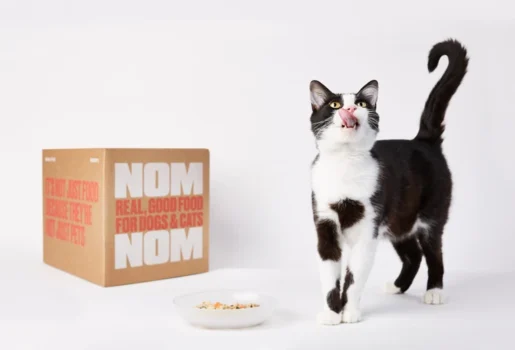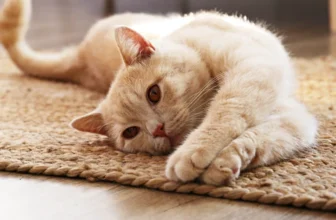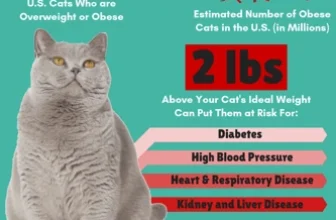As a cat owner, it’s natural to want the best for our feline friends, and this includes their diet. When it comes to American Shorthairs, finding a suitable diet plan can be a tricky task. With so many options available, it’s important to understand the benefits and risks of each. Two popular diet plans for American Shorthairs are high-protein and low-calorie diets. But which one is better for weight management? In this article, we’ll delve into the details of both high-protein and low-calorie diets, weigh up their benefits and potential risks, and help you make an informed decision on which diet plan is best suited for your American Shorthair.
Why Do American Shorthairs Need a Diet Plan?
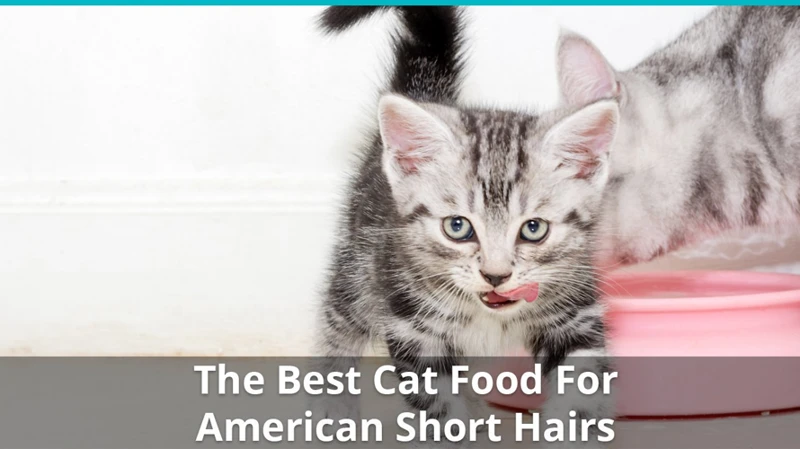
Taking care of your American Shorthair’s weight is crucial to ensuring their overall health and well-being. As beloved members of your family, it’s important to provide them with a healthy diet plan to help them maintain an ideal body condition score and prevent obesity-related health issues. In this section, we will explore why American Shorthairs need a diet plan to help them live a healthy and happy life. For more information on how to help your American Shorthair lose weight, you can check out our article on weight management for American Shorthairs.
Obesity in American Shorthairs
According to recent studies, American Shorthairs have a higher risk of becoming overweight or obese compared to other cat breeds. In fact, obesity has been identified as one of the most common health issues among American Shorthairs.
Obesity can lead to a variety of health problems for American Shorthairs such as heart disease, diabetes, and joint problems. It can also reduce lifespan and decrease quality of life. Besides genetics, several factors contribute to obesity, including a sedentary lifestyle and overfeeding.
To determine whether an American Shorthair is overweight or obese, pet owners can use the body condition score system. This system helps evaluate a cat’s body fat percentage by physically examining and touching its body. If the cat has a body condition score of 6 or 7 out of 9, it is considered overweight or obese.
As obesity can cause serious health issues in American Shorthairs, it is crucial to take measures to prevent and manage it. Pet owners can consider implementing various strategies such as portion control, promoting physical activity via indoor activities, and providing healthy treats instead of indulging in high-calorie ones.
Obesity is a significant threat to the health and well-being of American Shorthairs. Pet owners should be aware of the risks associated with obesity and take steps to manage their pet’s weight more effectively. Through proper nutrition and physical activity, American Shorthairs can maintain a healthy weight and live a long, fulfilling life.
Benefits of Ideal Body Weight
Maintaining an ideal body weight is crucial for the overall health and well-being of your American Shorthair. Here are some benefits of maintaining an appropriate weight for your feline friend:
- Reduced Risk of Health Issues: Obesity is a significant risk factor for several health problems in American Shorthairs, including diabetes, heart disease, respiratory issues, and joint problems. By keeping your pet’s weight in check, you can help reduce the risk of these health issues.
- Better Mobility: Overweight American Shorthairs may have difficulty moving around and performing their daily activities. Maintaining a healthy weight can help ensure better mobility, allowing your Shorthair to run, jump, and play with ease.
- Improved Energy Levels: Shorthairs that are overweight may often feel lethargic and may lack energy. Maintaining an ideal weight can improve energy levels and help your pet stay active and engaged throughout the day.
- Longer Lifespan: Excessive weight can take a toll on your American Shorthair’s health, leading to a shorter lifespan. Maintaining a healthy body weight can help your pet live a longer and healthier life.
It is important to note that achieving an ideal body weight for your American Shorthair requires a balanced diet and regular exercise. Consider indoor activities that your Shorthair can engage in to help maintain their weight and health. Avoid overfeeding your cat with treats and food, as it can lead to obesity and other health issues. If your Shorthair is already overweight, consult with your vet for specialized health treats and a personalized diet plan to help your pet get to a healthy weight.
Additionally, obesity is one of the most common health issues in American Shorthairs. To prevent obesity-related health problems, it is important to recognize the signs of obesity early on. Keep an eye out for excessive weight gain, reduced activity levels, and difficulty moving around. Regular check-ups with your vet can help identify these issues and address them before they become more severe. Learn more about obesity health issues in American Shorthairs by clicking on this link: /obesity-health-issues-american-shorthairs/.
High-Protein Diet
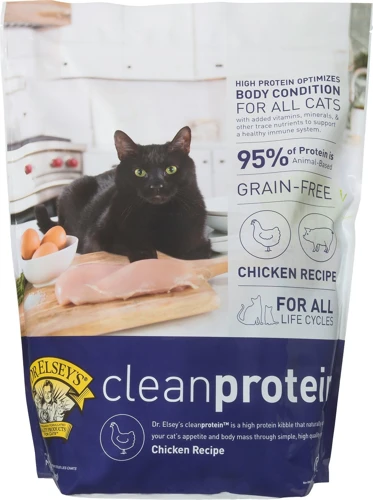
A great way to manage the weight of your American Shorthair is through a high-protein diet. This type of diet consists of a high percentage of protein-rich foods like meats, poultry, and fish, and is usually low in carbohydrates and fats. It’s important to note, however, that while high-protein diets can be beneficial for weight management, they also come with their own set of potential risks. So before making any significant changes to your furry friend’s diet, it’s important to consult with your vet. Additionally, incorporating indoor activities and healthy treats into your American Shorthair’s routine can help boost their overall weight management efforts. Consider checking out our indoor activities guide and health treats for weight loss for more information.
Benefits of High-Protein Diet
A high-protein diet can offer several benefits for American Shorthairs. Here are a few of the potential benefits:
| Benefit | Description |
|---|---|
| Weight Management | High-protein diets can help American Shorthairs maintain a healthy weight by increasing satiety, reducing hunger, and increasing metabolism. |
| Muscle Mass | Protein is crucial for building and maintaining muscle mass, which can not only help with weight management but also improve overall health and mobility. |
| Energy | Protein is important for providing energy and preventing fatigue, making it a great option for active American Shorthairs. |
| Healthy Skin and Coat | Protein is essential for healthy skin and coat, which can improve the appearance and overall health of American Shorthairs. |
It is important to note that a high-protein diet should also be balanced with other nutrients and should not be the only focus of a cat’s diet. It is also important to consult with a veterinarian before making any significant changes to a cat’s diet.
Potential Risks of High-Protein Diet
While high-protein diets have many benefits, it’s important to note that there are also potential risks to be aware of. Let’s take a closer look at some of these risks:
| Potential Risks of High-Protein Diet | |
|---|---|
| Kidney Damage: | Consuming too much protein can put stress on the kidneys, which may cause damage over time. This is particularly concerning for American Shorthairs, as they are already prone to developing kidney issues. |
| Dehydration: | High-protein diets can increase your cat’s thirst, making them more prone to dehydration. This can be dangerous, as dehydration can cause a range of health issues. |
| Weight Gain: | If your cat consumes too many calories, even if they’re from protein, they can still gain weight. It’s important to monitor your cat’s caloric intake and adjust it as needed. |
| Nutritional Imbalance: | If your cat is consuming too much protein and not enough of other nutrients, they may experience nutritional imbalances. This can lead to a range of health issues, including muscle wasting, digestive issues, and more. |
It’s important to note that these risks are generally associated with consuming excessive amounts of protein. As long as you’re feeding your American Shorthair a balanced diet and monitoring their protein intake, the potential risks of a high-protein diet can be minimized. However, if you’re unsure about how much protein your cat should be consuming, it’s always best to consult with your veterinarian.
Recommended Amount of Protein
When it comes to high-protein diets for American Shorthairs, it’s essential to note that they require a specific range of protein to maintain a healthy and balanced diet. According to the Association of American Feed Control Officials (AAFCO), the minimum daily protein requirement for adult cats is 26% on a dry matter basis, while kittens require a higher 30% protein on a dry matter basis.
However, the recommended protein intake may vary based on individual factors, such as the cat’s age, size, weight, and activity level. For instance, cats with a more active lifestyle or those recovering from an injury or illness may require a higher protein intake.
It’s important to note that while a high-protein diet can benefit American Shorthairs, overfeeding protein can lead to potential health risks such as kidney disease. It’s crucial to follow the recommended amount of protein intake and consult with your veterinarian to determine an ideal protein intake for your cat.
Recommended protein sources for American Shorthairs:
- Chicken
- Turkey
- Beef
- Lamb
- Fish (salmon, tuna)
- Eggs
Make sure to choose high-quality and easily digestible protein sources to ensure optimum health for your American Shorthair.
Low-Calorie Diet
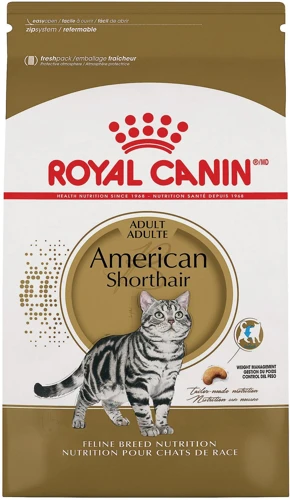
When it comes to weight management for American Shorthairs, a low-calorie diet is often recommended. This type of diet entails consuming fewer calories than what the cat typically needs to maintain their current weight. This approach can be effective in helping your feline friend shed excess pounds, but it’s important to understand its potential benefits and drawbacks. Let’s dive deeper into the world of low-calorie diets for American Shorthairs.
Benefits of Low-Calorie Diet
A low-calorie diet can provide numerous benefits for American Shorthairs, including weight loss, improved overall health, and increased longevity. Here are some of the benefits of a low-calorie diet:
| Benefit | Description |
|---|---|
| Weight Loss | A low-calorie diet can help your American Shorthair lose weight and maintain a healthy weight. By reducing the number of calories your cat consumes, their body will start to burn stored fat for energy, resulting in weight loss. |
| Improved Overall Health | A low-calorie diet can improve your American Shorthair’s overall health by reducing their risk of developing health issues like diabetes, high blood pressure, and heart disease. It can also improve their coat and skin health, making them look and feel better. |
| Increased Longevity | By helping your American Shorthair maintain a healthy weight and reducing the risk of health issues, a low-calorie diet can increase their longevity. This means you’ll be able to enjoy more years with your beloved feline companion. |
It’s important to note that a low-calorie diet should be implemented gradually and under the guidance of a veterinarian. Sudden dietary changes can cause digestive upset, and a veterinarian can provide guidance on the appropriate calorie intake for your specific cat based on their weight, age, and activity level. A low-calorie diet can be an effective tool for weight management and improving your American Shorthair’s overall health and well-being.
Potential Risks of Low-Calorie Diet
When it comes to low-calorie diets for American Shorthairs, it is essential to consider the potential risks associated with it. Here are some of the risks that you should be aware of before deciding to put your cat on a low-calorie diet:
- Inadequate nutrition: Low-calorie diets may lack some essential nutrients that American Shorthairs need to maintain good health and immunity. Since these diets are designed to limit calories, they may not provide enough protein, vitamins, and minerals that your cat needs.
- Weight loss too quickly: If your cat loses weight too quickly on a low-calorie diet, it can be harmful to their health. Rapid weight loss can cause liver disease, fatty liver, and other metabolic disorders that can be more dangerous than being overweight. It is crucial to ensure that your cat loses weight gradually and under the supervision of a veterinarian.
- Reduced energy levels: Since American Shorthairs are relatively active, they need a diet that provides enough energy to maintain their high activity level. Low-calorie diets may not be able to provide enough energy to keep your cat active and playful throughout the day.
- Inability to maintain weight loss: Some cats may not be able to maintain weight loss on a low-calorie diet, which can be frustrating for both the cat and the owner. When a cat regains weight, it can lead to numerous health complications, such as diabetes and heart disease.
- Behavioral changes: Some cats may become irritable or aggressive on a low-calorie diet due to hunger. This can lead to destructive behavior, such as scratching furniture, spraying, and biting.
It is essential to keep these potential risks in mind when considering a low-calorie diet for American Shorthairs. However, these risks can be minimized by ensuring that your cat gets adequate nutrition and by monitoring their weight loss progress closely. If you notice any adverse effects, you should consult your veterinarian immediately to modify your cat’s diet accordingly.
Recommended Calorie Intake
When it comes to implementing a low-calorie diet for your American Shorthair, it’s important to determine your feline’s recommended calorie intake. The recommended calorie intake for a cat can vary depending on their age, gender, weight, activity level, and overall health.
Typically, adult American Shorthairs weigh between 8-10 pounds. However, if your cat is overweight, it’s crucial to consult with your veterinarian to determine their ideal weight and recommended daily calorie intake.
Here is a breakdown of the general calorie requirements for cats:
- Neutered adult cats: 180-200 calories per day
- Intact adult cats: 200-300 calories per day
- Pregnant/lactating cats: 260-320 calories per day
- Kittens: 200-300 calories per day (depending on age and weight)
It’s important to note that the recommended calorie intake should be spread out throughout the day in smaller, frequent meals rather than one or two large meals. This can help with preventing overeating and promoting satiety.
While a low-calorie diet can be beneficial for weight management in American Shorthairs, it’s also important to ensure that they are still receiving all the necessary nutrients. Consulting with your veterinarian and implementing a balanced diet plan can help ensure your feline is getting the nutrients they need while still maintaining a healthy weight.
Which Diet is Better for American Shorthairs?
Choosing the right diet for your American Shorthair can be a perplexing task. Both a high-protein diet and a low-calorie diet have been touted as effective methods for weight management. However, which is better for your feline friend? In this section, we will delve into the factors that should be considered in making this decision. It’s important to keep in mind that every cat has individual needs, and consulting with your veterinarian is highly recommended. Let’s explore the benefits and potential risks of each diet to determine which is best suited for your American Shorthair’s weight management goals.
Factors to Consider
When it comes to deciding between a high-protein and low-calorie diet for your American Shorthair, several factors need to be considered. These factors include:
| Factors to Consider | Explanation |
|---|---|
| Age | The age of your American Shorthair can influence their dietary requirements. Kittens require more protein and calories for growth and development, while senior cats may benefit from a lower-calorie diet to maintain a healthy weight. |
| Activity Level | The activity level of your American Shorthair also plays a role in determining the best diet plan. Cats that are more active and burn more calories may benefit from a higher calorie intake, while less active cats may do better with a low-calorie diet. |
| Current Weight | If your American Shorthair is currently overweight, a low-calorie diet may be the best option to help them shed extra pounds. However, if your cat is at a healthy weight, a high-protein diet may help them maintain their weight and build muscle mass. |
| Health Issues | If your American Shorthair has any underlying health issues, such as kidney disease or diabetes, their dietary requirements may differ. It’s important to consult with your vet to determine the best diet plan. |
| Persian | Persian usually prone to obesity, so it is important to pay close attention to their diet. |
Ultimately, there is no one-size-fits-all solution when it comes to choosing a diet plan for your American Shorthair. It’s important to consider a variety of factors and consult with your vet before making any changes to your cat’s diet. By taking the time to evaluate your cat’s unique needs, you can choose a diet plan that supports their health and well-being.
Consult Your Vet
It’s important to remember that every American Shorthair is unique, and what works for one cat may not work for another. It’s always crucial to consult with your veterinarian before starting any new diet plan for your furry friend. Your vet can help you determine the appropriate amount of calories and protein for your cat’s individual needs based on their age, activity level, and overall health.
During the consultation, you can discuss any concerns you have about your cat’s weight and nutrition. Your vet can also help you identify the right type of food for your cat, taking into account your budget and your cat’s preferences.
Your vet can conduct a physical exam to check for any underlying health conditions that could be contributing to your cat’s weight gain or loss. Medical conditions like diabetes and thyroid disorders can affect appetite and metabolism, so it’s important to rule them out.
Your vet is your best resource for creating a safe and effective weight management plan for your American Shorthair. By working together, you can design a diet strategy that will help your cat reach and maintain a healthy weight which will lead to a happier and longer life.
Table:
| Reasons to Consult Your Vet for Weight Management |
|---|
| Individualized assessment of calorie and protein needs based on age, activity level, and health status |
| Identification of any underlying health conditions that could affect weight management |
| Selection of the appropriate type of food for your cat, based on budget and preferences |
| Assistance with designing a safe and effective weight management plan |
| Monitoring and adjustment of the diet plan as necessary over time |
Conclusion
In conclusion, deciding between a high-protein diet and a low-calorie diet for your American Shorthair can be a tough decision. Both diets have their own unique benefits and potential risks. A high-protein diet can aid in weight loss while maintaining muscle mass, but it can potentially put a strain on the kidneys. On the other hand, a low-calorie diet can lead to a steady and gradual weight loss, but it may also result in the loss of muscle mass.
It’s important to keep in mind that every cat is unique and may respond differently to each diet. Factors such as age, activity level, and overall health should also be considered when choosing a diet plan for your American Shorthair. It’s always best to consult with your veterinarian before making any major changes to your cat’s diet or lifestyle.
Regardless of which diet plan you choose, it’s important to monitor your American Shorthair’s progress and make adjustments as needed. Remember to show patience and consistency during the weight management process, and always prioritize your cat’s overall well-being. With dedication and proper care, you can help your American Shorthair achieve and maintain a healthy weight.
Frequently Asked Questions
1. Can American Shorthairs eat a high-protein diet?
Yes, American Shorthairs can eat a high-protein diet. In fact, a high-protein diet can help support their muscle mass and keep them feeling full.
2. Is it safe for American Shorthairs to eat a low-calorie diet?
Yes, it is safe for American Shorthairs to eat a low-calorie diet as long as they are still receiving the necessary nutrients they need for optimal health.
3. Can American Shorthairs become obese?
Yes, American Shorthairs can become obese if they consume too many calories and do not get enough exercise.
4. How much protein should be included in an American Shorthair’s diet?
The recommended amount of protein for an American Shorthair’s diet is 25-35% of their daily calorie intake.
5. How many calories per day should an American Shorthair consume?
The recommended number of calories per day for an American Shorthair can vary based on their weight and activity level, but it typically ranges from 250-350 calories per day.
6. What are the potential risks of a high-protein diet for American Shorthairs?
Some potential risks of a high-protein diet for American Shorthairs include kidney damage, digestive issues, and dehydration if they do not consume enough water.
7. What are the potential risks of a low-calorie diet for American Shorthairs?
Some potential risks of a low-calorie diet for American Shorthairs include nutrient deficiencies, loss of muscle mass, and decreased energy levels.
8. Can American Shorthairs switch between high-protein and low-calorie diets?
Yes, American Shorthairs can switch between high-protein and low-calorie diets as long as it is done gradually and with the guidance of a veterinarian.
9. What factors should be considered when choosing a diet for an American Shorthair?
Factors that should be considered when choosing a diet for an American Shorthair include their age, weight, activity level, and any health conditions they may have.
10. Why is it important to consult with a veterinarian before changing an American Shorthair’s diet?
It is important to consult with a veterinarian before changing an American Shorthair’s diet because they can provide guidance on the best type of diet based on the cat’s specific needs and help ensure that they are receiving all of the necessary nutrients for optimal health.

